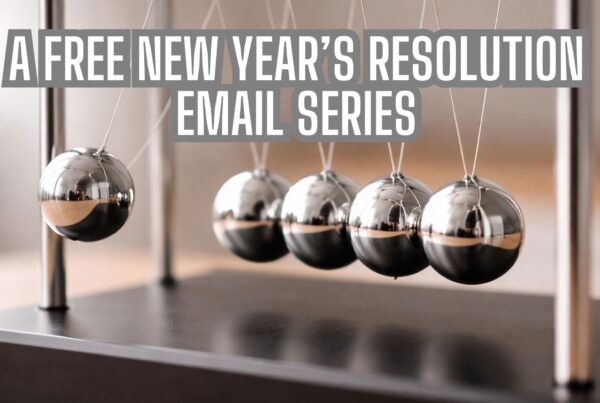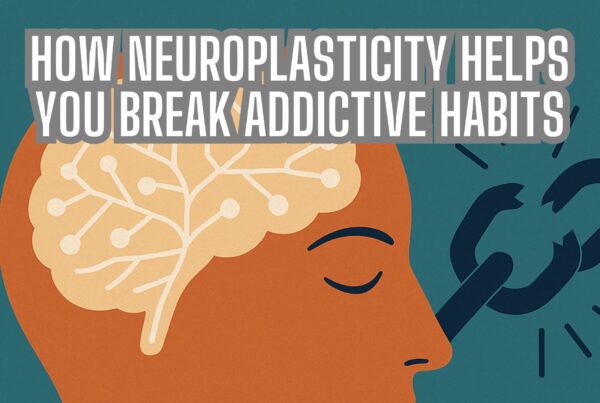Breaking Bad Habits with Mindfulness: A Path to Lasting Change
Mindfulness has emerged as a powerful tool for self-improvement, especially when it comes to breaking bad habits. By fostering awareness and empathy, mindfulness empowers us to take control of our actions and create positive change. This article explores the transformative potential of mindfulness in reshaping behaviour and overcoming the cycles of habitual patterns.
How Mindfulness Helps Break Bad Habits
Mindfulness, at its core, is the practice of being present in the moment with non-judgmental awareness. By focusing on the here and now, it helps us identify the triggers behind our bad habits. When we observe these impulses without reacting automatically, we create space to choose a different response.
For instance, instead of reaching for a sugary snack when stressed, mindfulness encourages recognising the emotion and addressing it with healthier alternatives, like deep breathing or a brief walk. This level of self-awareness is crucial for breaking the autopilot behaviours that fuel bad habits.
The Role of Kindfulness in Behaviour Change
Kindfulness—a blend of kindness and mindfulness—enhances our ability to change by adding self-compassion to the process. Traditional approaches to breaking habits often involve self-criticism, which can lead to feelings of failure. Kindfulness shifts the focus, encouraging us to treat ourselves with the same empathy we’d offer a friend.
This approach aligns with the principles outlined in Graham Allcott’s work, which highlights the strength of kindness in fostering trust and psychological safety. By starting with self-kindness, we build resilience and motivation, creating an environment where positive change becomes sustainable.
Identifying the Root Causes of Bad Habits
Understanding why we engage in certain habits is key to dismantling them. Mindfulness allows us to ask deeper questions, such as: What need is this habit fulfilling? What emotions or circumstances trigger this behaviour?
Answering these questions requires curiosity and patience. For example, someone who procrastinates might realise their habit stems from fear of failure. With mindfulness, they can address this underlying fear rather than merely trying to stop procrastinating.
The Science Behind Mindfulness and Habit Formation
Neuroscience supports the effectiveness of mindfulness in habit-breaking. Habits are rooted in neural pathways formed by repeated behaviours. Mindfulness interrupts these patterns, weakening the brain’s automatic responses and creating opportunities to establish new habits.
Moreover, studies show that mindfulness reduces stress and increases focus, two factors that directly impact our ability to resist temptations and maintain willpower. As our brains adapt to mindful practices, we become more adept at choosing actions that align with our long-term goals.
Mindfulness Practices for Breaking Habits
Several mindfulness techniques can aid in breaking bad habits. The most effective include:
- Meditation: Daily meditation strengthens focus and self-awareness, making it easier to notice and resist urges.
- Breath Awareness: Focusing on the breath during moments of temptation helps anchor the mind and reduce impulsivity.
- Body Scans: Regularly checking in with physical sensations can reveal stress or tension that might lead to habitual behaviours.
Integrating these practices into daily life doesn’t require a significant time commitment. Even five minutes a day can yield noticeable improvements.
The Importance of Empathy in the Process
Empathy, both for ourselves and others, plays a pivotal role in breaking habits. When we approach ourselves with understanding rather than judgement, we’re more likely to persist through challenges.
This mindset extends to interactions with others. For example, a workplace culture that prioritises empathy and kindness can make it easier for employees to address personal challenges without fear of criticism. As Graham Allcott suggests, leading with kindness creates a ripple effect that benefits everyone involved.
FAQs
- How does mindfulness differ from other methods of breaking habits?
- Mindfulness focuses on awareness and non-judgement rather than willpower alone. It addresses the root causes of habits, making it a more sustainable approach.
- Can mindfulness help with severe addictions?
- While mindfulness is beneficial, severe addictions often require professional intervention. Mindfulness can complement therapy and support long-term recovery.
- What’s the difference between mindfulness and kindfulness?
- Mindfulness is the practice of awareness, while kindfulness combines mindfulness with self-compassion and kindness towards others.
- How long does it take to break a habit with mindfulness?
- The timeframe varies, but consistent mindfulness practice can lead to noticeable changes within weeks. The key is persistence.
- Can children benefit from mindfulness in breaking habits?
- Absolutely. Simple mindfulness exercises can help children develop better self-control and emotional regulation, making it easier to address habits.
- What if I find mindfulness difficult to practise?
- Start small and be patient with yourself. Even brief moments of mindfulness can make a difference, and the practice becomes easier over time.
Breaking Bad Habits with Mindfulness
Breaking bad habits is a challenging but deeply rewarding journey. By embracing mindfulness and kindfulness, we can tackle the root causes of our behaviours and replace them with healthier alternatives. This compassionate approach not only transforms our habits but also enhances our overall well-being.
Release Hypnosis Melbourne Hypnotherapy
Since 2015, Lawrence Akers has been working under the name Release Hypnosis offering Hypnotherapy and ACT based work to the people of Melbourne or an online service. Based on St Kilda Rd, Release Hypnosis is an easy and convenient location to get to and accessible by the ANZAC station train and tram stop. Release Hypnosis can help with a wide range of presenting issues, and I offer a free 30 minute no obligation discovery call for those who are unsure if hypnotherapy is the right way forward for them.
Book Your FREE 30 Minute Consultation With Release Hypnosis NOW!
You may also like to read:
Exploring Content-Free Hypnotherapy
The Journey to Becoming a Better Hypnotic Subject
Best Hypnotherapy Resources 2023: Release Hypnosis Top Blogs
What Is The Success Rate of Hypnosis?
Release Hypnosis Melbourne Hypnotherapy is accessible for people in: Abbotsford, Armadale, Albert Park, Balwyn, Bentleigh, Black Rock, Box Hill, Brighton, Brunswick, Bulleen, Bundoora, Camberwell, Canterbury, Carnegie, Caulfield, Chadstone, Cheltenham, Clayton, Coburg, Collingwood, Deer Park, Doncaster, Elsternwick, Eltham, Elwood, Epping, Essendon, Fairfield, Fitzroy, Footscray, Glen Iris, Glen Waverley, Glenhuntly, Greensborough, Hampton, Hawthorn, Heidelberg, Highet, Ivanhoe, Kew, Kooyong, Lalor, Laverton, Lower, Plenty, Macleod, Malvern, Middle Park, Moonee Ponds, Melbourne, Moorabbin, Mount Waverley, Murrumbeena, Northcote, Oakleigh, Ormond, Parkville, Pascoe Vale, Port Melbourne, Prahran, Preston, Richmond, Rosana, Sandringham, South Yarra, South Melbourne, Spotswood, St Albans, St Kilda, Surrey Hills, Templestowe, Thornbury, Toorak, Tullamarine, Williamstown, Yarraville, North Melbourne, Windsor, East Melbourne, Melbourne, Melbourne CBD, Melbourne 3004








